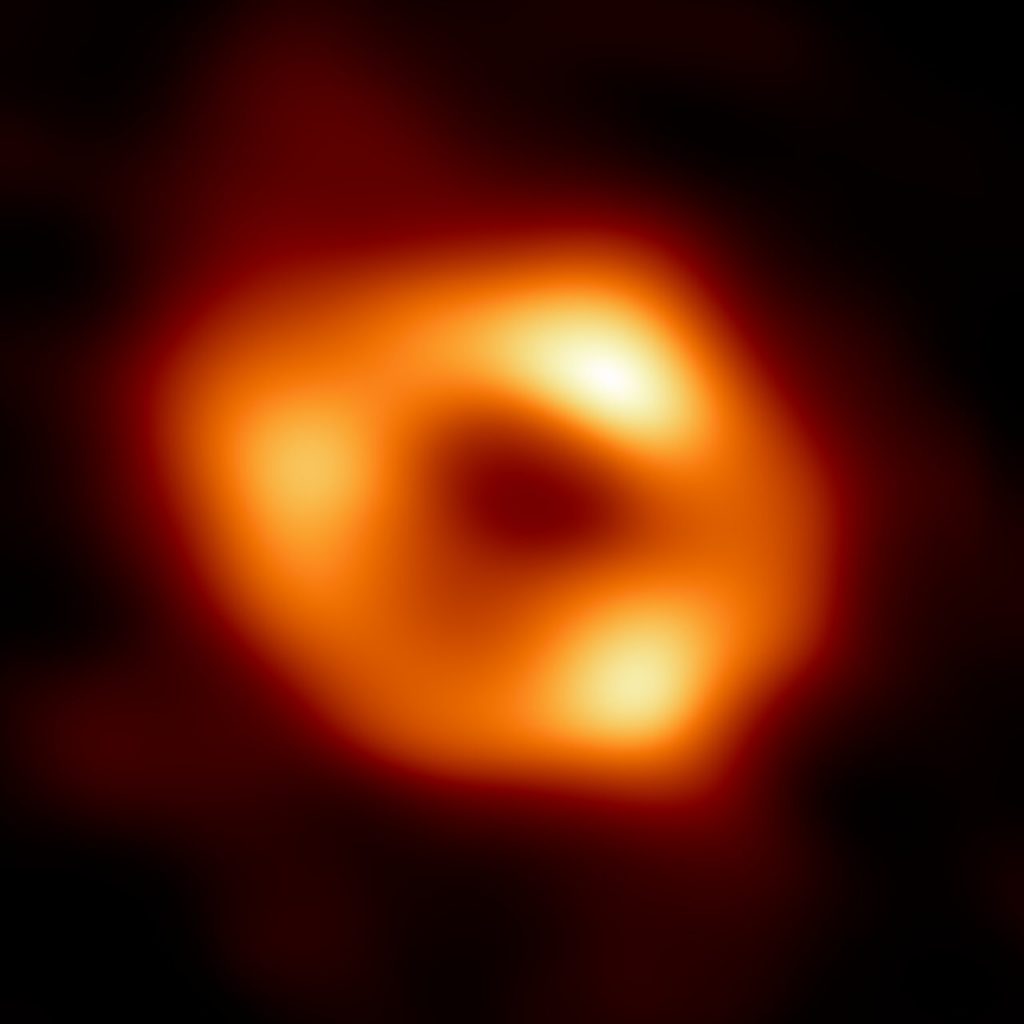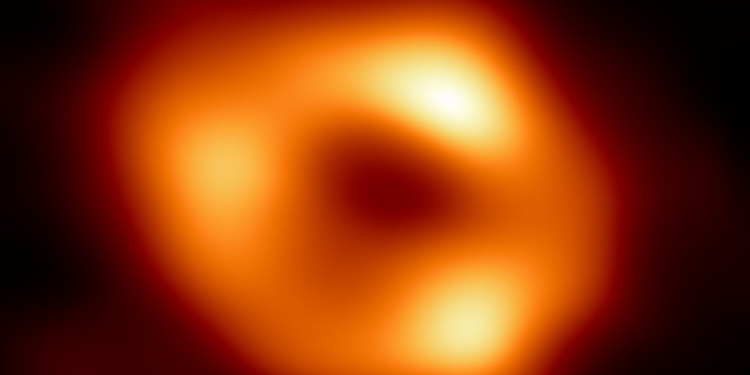What is the Event Horizon Telescope?
The EHT (Event Horizon Telescope) is a global ultra-long baseline radio interferometer operating at a wavelength of 1.3 millimeters. Thanks to the synchronization of the work of telescopes located on different continents using atomic clocks and the use of supercomputers for data processing, astronomers achieved historical milestones for science.
Black holes in picture – a historical achievement
In 2019, for the first time in history, scientists obtained an image of the shadow of a supermassive black hole at the center of the active elliptical galaxy M87, saw its fluctuations, and measured the magnetic field near the hole.
The second supermassive black hole whose shadow was to be captured in an image by the EHT was a black hole located in the center of the Milky Way, at a distance of about 27 thousand light-years from the Sun and associated with the Sagittarius A* radio source.
https://twitter.com/ESO/status/1524738325696983041?s=20&t=FBcijw-MxxvPWmtS0yrjog&fbclid=IwAR1rxL6306xfaOKbLRNEkN_7bhnsd1EXLBjlA3tjxsAOs4rSSe_3yE0UNvs
Initially, scientists learned about the existence of a compact object at the end of the last century by tracking the movement of stars near a black hole, for which the Nobel Prize in Physics was awarded in 2020.
Later, thanks to the GRAVITY collaboration, astronomers received new evidence that there is a black hole with a mass of 4.29 million solar masses at the center of the Milky Way. For such a mass, the radius of the event horizon is about 6 million kilometers, which is about 15 times the distance from the Earth to the Moon.
For the first time, we have an image of the shadow of the supermassive black hole in the Milky Way
On May 12, 2022, the EHT collaboration announced that it had obtained the first-ever image of the shadow of a supermassive black hole at the center of the Milky Way.
This became possible due to the expansion of the operating wavelength range and the inclusion of new observatories in the EHT. Thus, astronomers have the final proof of the existence of such a massive compact object in the central zone of our galaxy.

Join the discussion and participate in awesome giveaways in our mobile Telegram group. Join Curiosmos on Telegram Today. t.me/Curiosmos











